Advisory Board
The Advisory Board is composed of seven external experts who identify subjects of strategic importance to the Center and inform the Steering Committee of them; to explore with the Center the best way to conduct collaborative activities with partners; and to provide advice on the development of the Center’s program of activities.
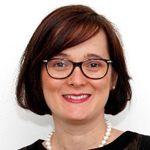
Camilla Colombo
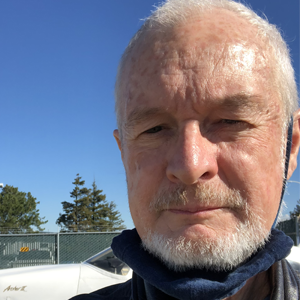
Etienne Deffarges
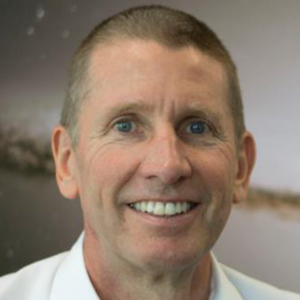
Peter Guggenbach
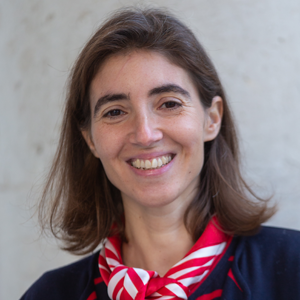
Chiara Manfletti
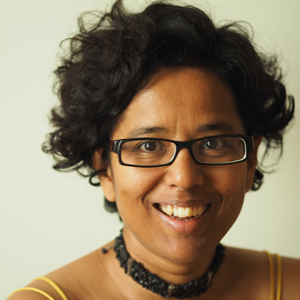
Susmita Mohanty
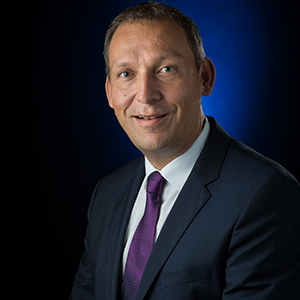
Thomas Zurbuchen

Camilla Colombo
Camilla Colombo is an Associate Professor in Orbital Mechanics at Politecnico di Milano and Principal Investigator of the COMPASS project. Before that she was Associate Professor and Lecturer in Spacecraft Engineering at the University of Southampton in the Astronautics Research Group. Her research areas spaces among orbital dynamics, trajectory design and optimisation, dynamical system analysis and control, and space mission analysis and design. She is an delegate for the Inter Agency Debris Coordination Committee and the UN mandated Space Mission Planning Advisory Group for mission to asteroids. She gained a Master’s degree in Aerospace Engineering from Politecnico di Milano (Italy) in 2005 and a PhD in Aerospace Engineering from the University of Glasgow (UK) in 2010, with a thesis on “Optimal Trajectory Design for Interception and Deflection of Near Earth Objects” funded by the EPSRC on “Optimal Interception and Deviation of Potentially Hazardous Near Earth Objects”.

Etienne Deffarges
Etienne Deffarges is a former San Francisco based senior business executive and entrepreneur, who now lives in Lausanne. He was a Senior Partner with Booz Allen Hamilton, a Global Managing Partner with Accenture, and co-founded a health care technology services company, R1-RCM, leading its IPO in New York. He holds a MBA from the Harvard Business School, where he graduated as a Baker Scholar; A MS from the University of California at Berkeley, where he was a French Government Fellow; and a BS/MS degree from ISAE/Sup’Aero in aeronautical and aerospace engineering.

Peter Guggenbach
Peter Guggenbach is Chief Growth Officer of SWISSto12, the world leading company in 3D printed Radio Frequency Products for Aerospace and Surveillance. Further building the HummingSat, which is a one tonne GEO Telecom-Satellite with state of the art technology. Previously he was CEO of RUAG Space and grew the company to the European mar-ket leader in Space Products. He has held a variety of management positions at ABB, most recently as head of the local Automation Products division at ABB Switzerland. He is member of the board of the Federal Commission for Space Affaires (CFAS) and member of the Cellue Espace der Schweizer Armee.
Peter Guggenbach studied electrical engineering at the Swiss Federal Institute of Technology in Zurich (ETHZ) and was 1997 awarded a doctorate in electronics. He made his executive MBA in 2003 at the International Management Development School IMD in Lausanne and was in the Swiss air force for 25 years was a helicopter pilot.

Chiara Manfletti
Chiara Manfletti holds a degree in aeronautical engineering from Imperial College London (2001), a masters degree in space studies from the International Space University (2002) and a PhD from RWTH Aachen (2010). She worked for the German Aerospace Center in liquid rocket propulsion. She later joined the European Space Agency in 2016, as Programme Advisor to the Director General and then as the Head of Policy and Programmes Coordination. She guided the preparation of ESA Ministerial Meetings programmatically and financially. In March 2019 she was nominated the first President of the then just founded Portuguese national space agency and setup the space agency from scratch as a modern space agency and established a new space implementation strategy for Portugal. Today she is Professor of Space Mobility and Propulsion at the TUM and Director and Chief Operating Officer of Neuraspace.

Susmita Mohanty
Susmita Mohanty is a spaceship designer, serial entrepreneur and space diplomat. She is the Director General of Spaceport SARABHAI (S2) – India’s first and only ‘space’ think tank which she co-founded in 2021, and she co-founded companies on 3 different continents: EARTH2ORBIT, Bangalore (2009-2021), LIQUIFER Systems Group, Vienna (2004-ongoing), and MOONFRONT, San Francisco (2001-2007). Via EARTH2ORBIT, her 3rd entrepreneurial venture, she played a pivotal role in enabling the first-ever historic launch agreement between an American satellite constellation company Skybox and Antrix, the Indian space agency’s commercial arm, paving the way for many more American satellites to be launched onboard the Indian PSLV rocket.
Prior to turning entrepreneur, Susmita worked on Shuttle-Mir missions at NASA Johnson in Houston and later for the International Space Station Program at Boeing in Huntington Beach. She was one of the experts invited by the Principal Scientific Advisor to the Prime Minister of India to share insights on the role of start-ups in creating a thriving space economy. She was invited by the Swiss Space Office to provide inputs for crafting the 2023 Swiss Space Policy. In 2019, she was selected as one of BBC’s 100 Women laureates who inspire and influence a female-led future, and in 2017, she was featured on cover of Fortune Magazine. On the occasion of India’s 75th anniversary of its independence, Susmita was one of the 75 women honoured by the Indian government with the Women Transforming India (WTI) Awards. Susmita is a Member of the World Economic Forum (WEF) Global Future Council for Space Technologies and a non-resident scholar at Carnegie India. She serves on the Advisory Boards of the global alliance for Earth-Space Governance and at eSpace. Educated in India, France, and Sweden, Susmita holds multiple degrees including a PhD.

Thomas Zurbuchen
Dr. Thomas H. Zurbuchen is a professor and leader of the Space Programs at ETH Zurich, in Switzerland. Known in the space community as “Dr. Z,” he is the longest continually serving head of science at NASA, a post he held from 2016 to 2022. As NASA associate administrator for the Science Mission Directorate, he was responsible for all aspects of NASA leadership in space science. During his tenure, NASA launched 37 science missions and started 54, including the James Webb Space Telescope, two Mars landings, the Ingenuity helicopter, the Parker Solar Probe, and the DART mission. Zurbuchen also conceived and led the Earth System Observatory, an advanced multi-platform observatory that creates a 3D holistic view of the Earth, from bedrock to atmosphere.
He has a MS and PhD of physics/astrophysics from the University of Bern and as a Professor worked at the University of Michigan as a researcher, teacher and innovator for two decades. He was the founder of the award-winning Center for Entrepreneurship there which achieved top rating within the US for their educational and experiential programs. He is a member of the Swiss Academy of Engineering Sciences, recipient of the NASA Outstanding Service Medal, associate fellow of the American Institute of Aeronautics and Astronautics, and recipient of the Presidential Rank Award, Distinguished Level. He is a winner of the excellence in international cooperation award of the International Astronautical Federation (IAF), and has received multiple honorary doctorates.
steering committee
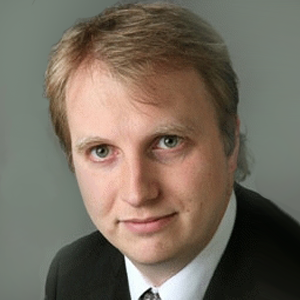
Andreas Burg
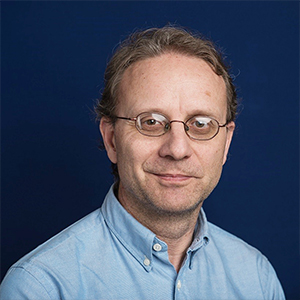
Edoardo Charbon
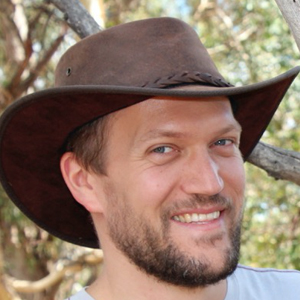
Mathieu Salzmann

Andreas Burg
Andreas Burg was born in Munich, Germany, in 1975. He received his Dipl.-Ing. degree in 2000 from the Swiss Federal Institute of Technology (ETH) Zurich, Zurich, Switzerland. He then joined the Integrated Systems Laboratory of ETH Zurich, from where he graduated with the Dr. sc. techn. degree in 2006. In 1998, he worked at Siemens Semiconductors, San Jose, CA. During his doctoral studies, he was an intern with Bell Labs Wireless Research for a total of one year. From 2006 to 2007, he held positions as postdoctoral researcher at the Integrated Systems Laboratory and at the Communication Theory Group of the ETH Zurich. In 2007 he co-founded Celestrius, an ETH-spinoff in the field of MIMO wireless communication, where he was responsible for the ASIC development as Director for VLSI. In January 2009, he joined ETH Zurich as SNF Assistant Professor and as head of the Signal Processing Circuits and Systems group at the Integrated Systems Laboratory. In January 2011, he became a Tenure Track Assistant Professor at the Ecole Polytechnique Federale de Lausanne (EPFL) where he is leading the Telecommunications Circuits Laboratory in the School of Engineering. In June 2018 he was promoted to the role of a Tenured Associate Professor. In 2000, Mr. Burg received the Willi Studer Award and the ETH Medal for his diploma and his diploma thesis, respectively. Mr. Burg was also awarded an ETH Medal for his Ph.D. dissertation in 2006. In 2008, he received a 4-years grant from the Swiss National Science Foundation (SNF) for an SNF Assistant Professorship. In his professional career, Mr. Burg was involved in the development of more than 25 ASICs. He is a member of the IEEE and of the European Association for Signal Processing (EURASIP).

Edoardo Charbon
Edoardo Charbon received his diploma from ETH Zurich, his M.S. from the University of California at San Diego, and Ph.D. from the University of California at Berkeley in 1988, 1991, and 1995, respectively, all in electrical engineering and EECS. He has consulted with numerous organizations, including Bosch, X-Fab, Texas Instruments, Maxim, Sony, Agilent, and the Carlyle Group. He was with Cadence Design Systems from 1995 to 2000, where he was the Architect of the company’s initiative on information hiding for intellectual property protection. In 2000, he joined Canesta Inc., as the Chief Architect, where he led the development of wireless 3-D CMOS image sensors.
Since 2002 he has been a member of the faculty of EPFL, where is a full professor. From 2008 to 2016 he was with Delft University of Technology’s as Chair of VLSI design. Dr. Charbon has been the driving force behind the creation of deep-submicron CMOS SPAD technology, which is mass-produced since 2015 and is present in telemeters, proximity sensors, and medical diagnostics tools. His interests span from 3-D vision, LiDAR, FLIM, FCS, NIROT to super-resolution microscopy, time-resolved Raman spectroscopy, and cryo-CMOS circuits and systems for quantum computing. He has authored or co-authored over 400 papers and two books, and he holds 25 patents. Prof. Charbon is the recipient of the 2023 IISS Pioneering Achievement Award, he is a distinguished visiting scholar of the W. M. Keck Institute for Space at Caltech, a fellow of the Kavli Institute of Nanoscience Delft, a distinguished lecturer of the IEEE Photonics Society, and a fellow of the IEEE.

Mathieu Salzmann
Dr. Mathieu Salzmann is a Senior Scientist at EPFL, and, since May 2020, a part-time Senior GNC Engineer at ClearSpace. Previously, he was a Senior Researcher and Research Leader in NICTA’s computer vision research group. Prior to this, from Sept. 2010 to Jan 2012, he was a Research Assistant Professor at TTI-Chicago, and, from Feb. 2009 to Aug. 2010, a postdoctoral fellow at ICSI and EECS at UC Berkeley under the supervision of Prof. Trevor Darrell. He obtained his PhD in Jan. 2009 from EPFL under the supervision of Prof. Pascal Fua. Mathieu Salzmann’s research lies at the intersection of machine learning and visual recognition, with a focus on space-related applications. He has published over 100 articles at top-tier peer-reviewed machine learning and computer vision venues, including CVPR, ICCV, ECCV, NeurIPS, ICML, ICLR, IEEE TPAMI, IJCV, and JMLR. He regularly acts as an Area Chair for these venues and is an editorial board member for IEEE TPAMI and TMLR.